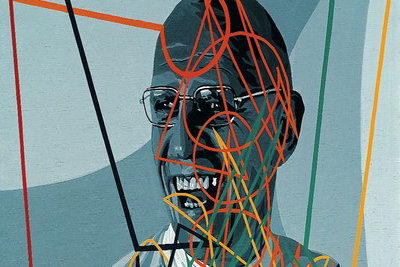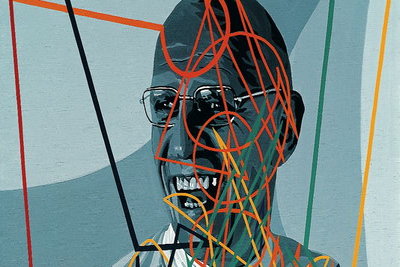Foucault's legacy: an interview with Frédéric Gros


Why has Michel Foucault become one of the contemporary thinkers whose 'toolbox' is most used by intellectuals today?
Foucault's thought is extraordinarily diverse, defying the most firmly established academic partitions and rejecting blind dogmatism and reductionist monolithism. For example, his thought allows a re-interrogation of the structures of language, power mechanisms, and the ethics of the subject, all at the same time... It is inventive, troublesome, refusing to let itself be boxed in by reductionist slogans or definitive truths. In this sense, it is very apt for our era of mutations, as dividing lines are redrawn and identities reconfigured.
To what extent can his work be a useful spur to thought and action in the digital age's universe of generalised surveillance?
Foucault's great studies of disciplinary society are useful above all because they allow us to delineate, through contrast and comparison, the digital governmentality that subjects us to new forms of control, which are less vertical, more democratic and, above all, no longer burdened by any anthropological ballast. Homo digitalis today participates in, is the primary agent of, the surveillance of himself. Digital society is becoming a form of mutualised control. We should today consider the treatment of 'big data' working with Foucault, basing ourselves on him, but seeing further than he could. Because we have gone well beyond the disciplinary age. Security's new concepts are no longer imprisoning individuals and normative consciousness, but rather traceability and algorithmic profiling. Similarly, while we do need to study the great contemporary manifestations of the self, they are irreducible to the austere and demanding Greek concern for the self that Foucault saw as the accompaniment to any political engagement. Concern for oneself is nothing other than giving shape to one's freedom, reflecting on the self before taking action in order to be able to make responsible decisions rather than simply letting oneself be passively swept along by the course of events. This expression of freedom is something very different to the hysterical media veneration of the self, where you can measure your value by your number of Twitter followers.
How come this intellectual has inspired the neoliberal Right as well as the radical Left, François Ewald as well as Antonio Negri?
Because his oeuvre is much more descriptive than it is normative. It invents new concepts ('techniques of subjectivation', 'governmentality', 'biopolitics') but does not lay down rules on how these notions are to be used. It proposes unprecedented genealogies of our modernity, but forbids itself from passing judgement. Again, each person must come to take responsibility for its usages: philosophy is, at root, nothing other than this renewal movement. Foucault constantly displays this reticence toward making any normative propositions, and for many people this represents a limitation of his work. At the same time, there will never be any shortfall of intellectuals who think that their duty is to tell us what to do and what not to do.
Their constant concern, would you say, is not the enigmas of power, but rather the mysteries of obedience?
Recent studies on the concern for the self indicate that the problem of politics is also the problem of the political subject. To speak of a 'relation with oneself' is not an invitation for each person to fall back on his ego, but rather to pose the question of power in a different way: what is this relation with oneself on the basis of which you allow yourself to execute an order or refuse a commandment? As soon as we pose the question of the reasons for obedience, we are in the realm of the justifications for authority. Foucault poses the question of modalities of obedience because this level of questioning implies the possibility of disobedience.
Do we not run the risk of erecting statues of Michel Foucault, rendering his work a new doxa? From Jacques Derrida to Jean Baudrillard, Jürgen Habermas to Régis Debray, Marcel Gauchet to Claude Quétel, which critiques are the most fruitful?
That is indeed a risk, particularly at the moment that we mark the thirtieth anniversary of his death. But his work must be evaluated as an invitation to think differently, rather than as a theoretical model to be followed. At the same time, the constitution of an orthodoxy is singularly complicated by the very dynamic of his oeuvre, which perpetually in motion, open to infinite questioning. The critiques of which you speak are now themselves part of the reception of Foucault's oeuvre. History will decide which among them are of most decisive significance.
Read the original French interview here.
Frédéric Gros is the author of A Philosophy of Walking.
Michel Foucault is interviewed by Alain Badiou here.